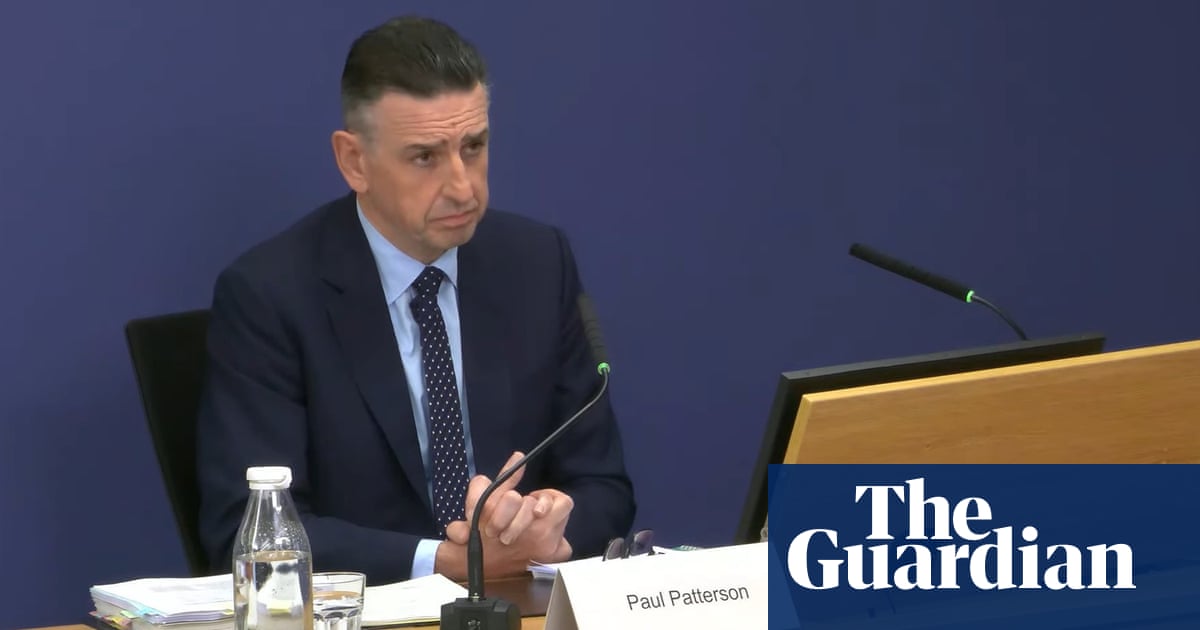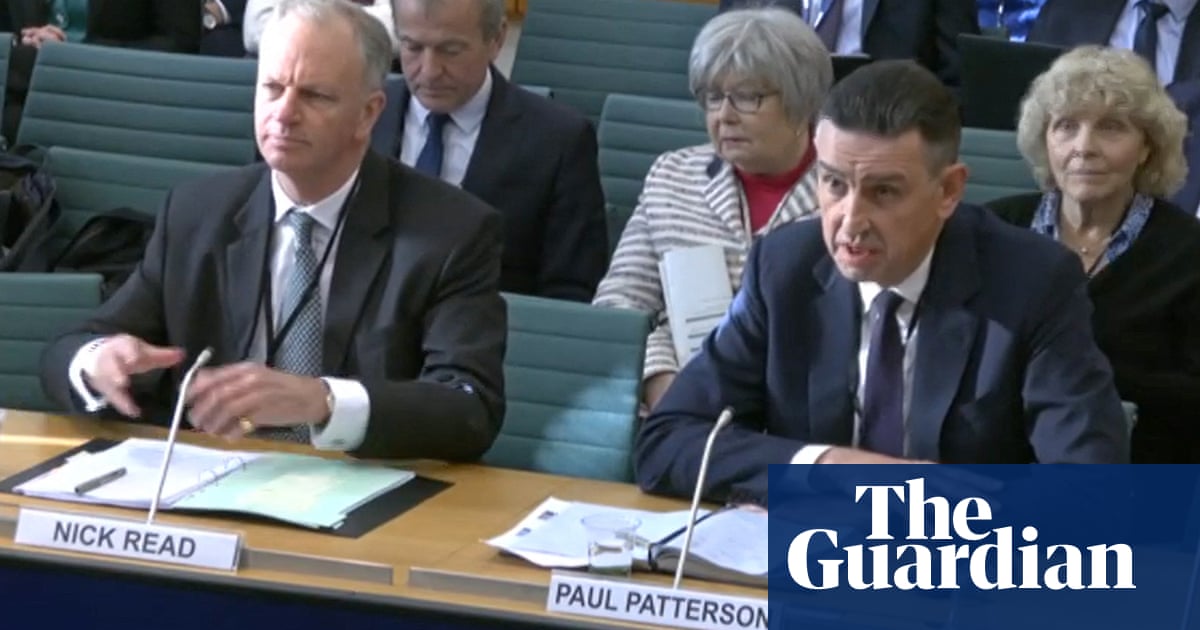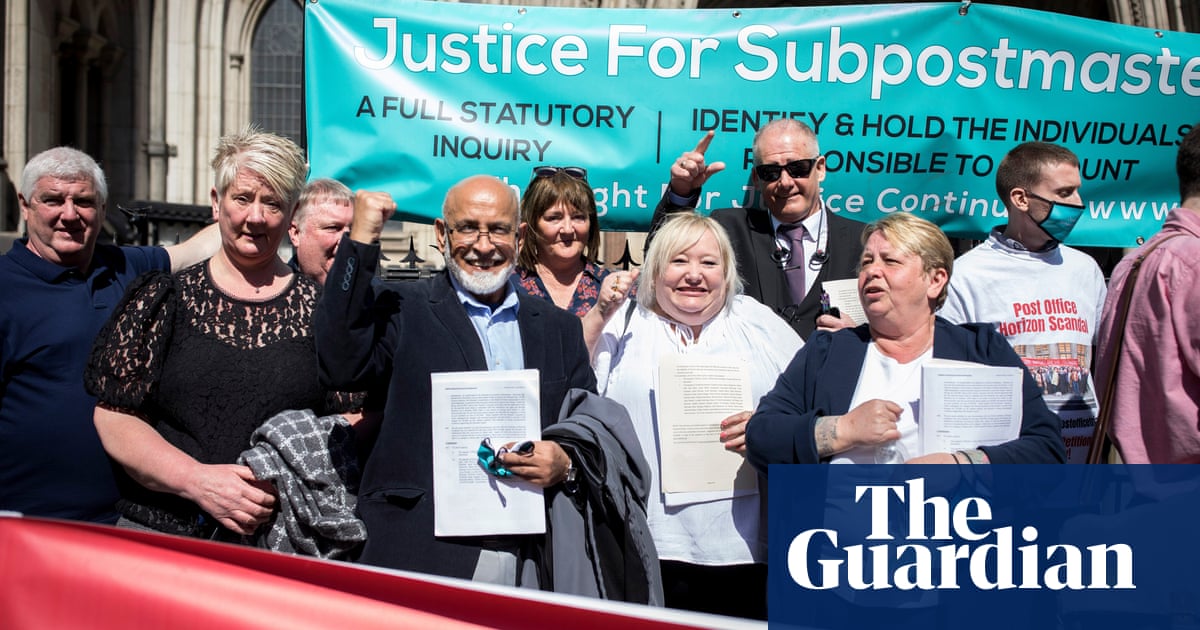
A former IT engineer has admitted he changed crucial expert court testimony at the request of the Post Office during wrongful prosecutions of branch operators.
Gareth Jenkins, a former senior engineer at the contractor Fujitsu, on Tuesday told the public inquiry into one of the biggest miscarriages of justice in British history that lawyers had asked him to change witness statements.
Jenkins, who was facing the first of four days of questioning at the judge-led hearings in London, also claimed that the Horizon IT software was “in general … working well”, despite its central role in the scandal.
The state-owned body wrongfully prosecuted 900 post office operators on the basis of alleged financial shortfalls in the accounts of their branches. However, many of those shortfalls were caused by bugs and errors in the Horizon system that operators were forced to use.
Fujitsu designed and built the Horizon system. The twice-postponed questioning of Jenkins, who was honoured as a “distinguished engineer” by the Japanese-owned company, will run for longer than any other witness during the inquiry.
Jenkins is part of a Metropolitan police investigation into possible perjury and perverting the course of justice. Before his testimony, Jenkins was reminded of his privilege against self-incrimination by the judge leading the inquiry, Wyn Williams.
The inquiry is in part examining whether the Post Office and contractors knew about the existence of bugs before deciding to go ahead with the prosecutions, and whether they covered up vital evidence about Horizon during those prosecutions.
A former Post Office financial investigator last week said Jenkins may have decided to remove references to “system failures” in Horizon in written testimony as an expert witness during one prosecution.
Under UK law, expert witnesses have a duty to the court to give unbiased testimony. Jenkins repeatedly said on Tuesday that he was not aware of the duties of an expert witness at the time of the prosecutions, and that he made changes to his evidence in line with suggestions from Post Office lawyers.
Seema Misra, who attended the hearing on Tuesday, was one of the post office operators wrongfully convicted on the basis of Horizon evidence. She was pregnant with her second child when she was sent to prison.
In a witness statement published by the inquiry on Tuesday, Jenkins said that in 2010 he sent a draft witness statement regarding Misra’s case to the Post Office. The company’s barrister, Warwick Tatford, made comments on the draft.
Jenkins wrote: “He appeared to want me to make some points more strongly in favour of [Post Office Limited] than I had done. In particular, he wanted me to say that it looked as though Mrs Misra had stolen money rather than that it was incompetence.”
In his written statement, Jenkins apologised to Misra, denied lying, and said he only found out she was pregnant years later. Misra rejected the apology in a tearful interview with the BBC outside the hearing. “He could have done it ages ago when he said he realised,” she said. “Let’s see how cooperative he is with this inquiry.”
Asked about a different case, Jenkins said: “I actually changed things there as a result of some of those comments ... I was happy to accept suggestions of how my wording could be improved.”
Jenkins said he pushed back against the Post Office when the suggested changes went too far. He told the inquiry: “There were certainly cases where they were trying to put words into my mouth which I didn’t want to say.”Under hours of detailed scrutiny, Jenkins repeatedly said he would have acted differently with hindsight. However, he also stood by the Horizon system, arguing that it was working well “most of the time”. He did not agree with a 2019 high court judgment that found Horizon was not robust.
He was questioned repeatedly about the court’s findings by Jason Beer, a barrister for the inquiry. Asked whether he agreed the software was “susceptible to accounting flaws”, Jenkins said: “There were some discrete bugs that caused problems to the accounts, but they were very discrete, and I believe they were all well controlled and managed at the time.”












